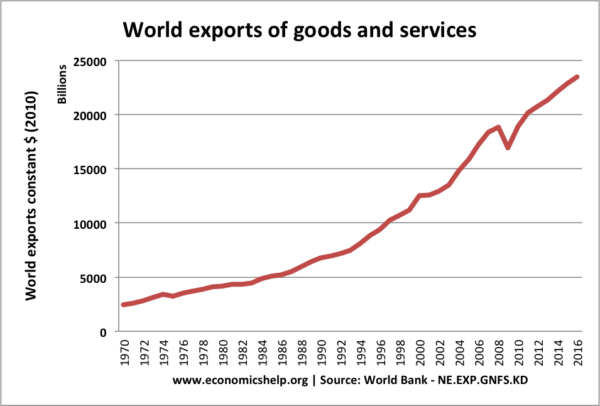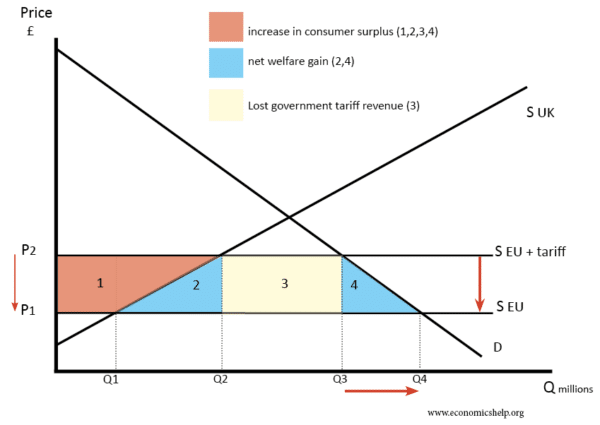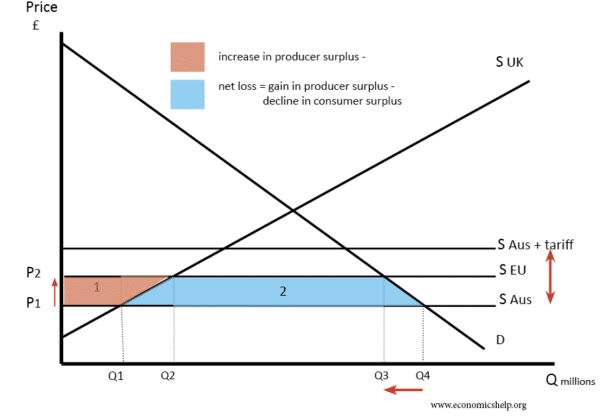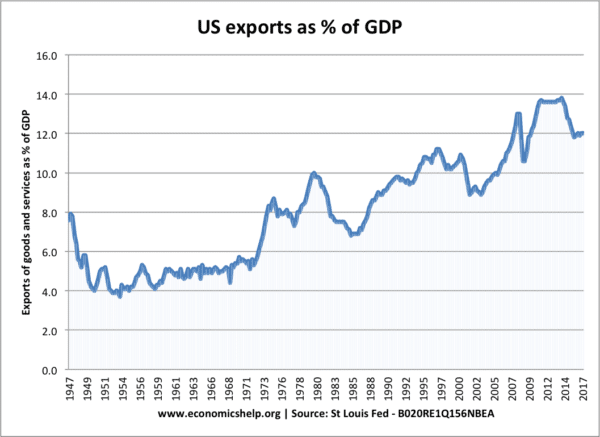If countries specialize in the production of certain goods and then trade with other countries there will be an increase in economic welfare. Countries will specialize in those goods where they have a comparative advantage.
Absolute Advantage
This occurs when one country can produce a good with fewer resources than another. E.G. if USA can produce cars with lower cost than the UK the USA has an absolute advantage in producing cars.
Comparative Advantage
A country has a comparative advantage over another in the production of a good if it can produce it at a lower opportunity cost:
- i.e. it has to forego less of other goods in order to produce it.
The law of comparative advantage
This states that trade can benefit all countries if they specialise in the goods in which they have a comparative advantage.
Trade Creation
This occurs when countries switch from high-cost producer to low-cost producer.
Lower tariffs increase consumer surplus and net economic welfare gain of 2+4. Trade creation
Advantages of free trade
- Lower prices
- Specialisation and economies of scale
- Increased competitive pressure
- Growth of export industries
- See – advantages of free trade
Disadvantages of free trade
- Some industries lose out – possible Structural unemployment.
- Developing economies may struggle to diversify their economy.
- Disadvantages of free trade
Trade diversion
When production shifts from low-cost producers to high-cost producers
Importance of trade to world economy

Related




I love how you said that free trade has lower prices. That means that we save a lot of money and still get a lot of goods that we need. The increased competitive pressure that you mentioned is also good because it drives businesses to do better.